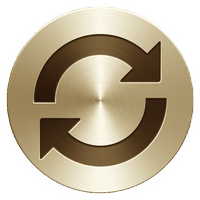Tech
When iSync goes bad
Usually a friendly, helpful service, SyncServices can sometimes go rogue, and screw up your Address Book contacts and iCal appointments on your iPhone or MobileMe account. An updated Apple support note describes the steps to return correct syncing.


If your issue involves syncing with MobileMe, such as data not syncing successfully, unusually long sync sessions, or you notice an alert about inconsistent data, you should reset sync data. You should back up your data before doing so and always do this from the computer that's the most up to date.In the iSync application's Preferences pane there's just one item under the Advanced heading: a big button labeled Reset Sync History ... If that doesn't work then you will have to fiddle in the Terminal app. One of my favorite warnings in a technical note can be found in the warning about trashing the SyncServices folder, an action that many of us might think to do.
As if it were a swarm of bees, you should stay away from the SyncServices folder in Mac OS X. Removing or modifying anything in it--or in any subfolders within it--may cause unexpected issues. This folder is located in your Application Support folder, in your Library folder, in your Home folder.But if the reset doesn't work, then the troubleshooting note offers separate procedures for issues with contacts and calendars. You backup your data, export the data to another format, trash the files and caches, and then import your data. Of course, you will have to rebuild your groups. I found this list of potential calendar file problems interesting:
* Check to see if any calendar events have blank or empty titles. If so, rename these events so they have a title or delete the event. * Check for calendar entries containing any events using high ASCII or double-byte (Unicode) characters in the event title (such as Japanese, Chinese, Korean or other extended ASCII characters). Try removing these characters or substituting them with non-extended ASCII characters. * Check for and remove any duplicate calendar entries. * Consider removing some old events if you have a very large number of them.It's easy to have blank events and duplicates, and especially historic events. I hadn't considered that these items could become a problem for iCal and potentially corrupt my calendar.